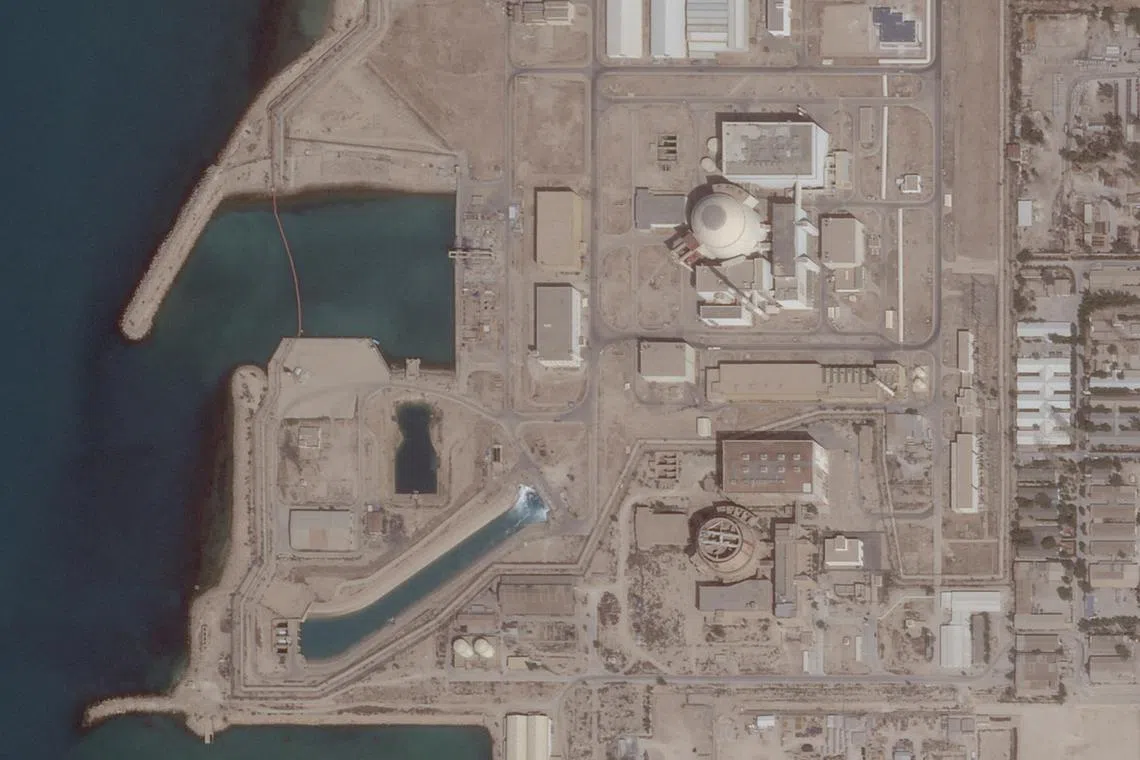Situation at Iran’s Bushehr nuclear plant is ‘normal’, Russian official says
Sign up now: Get ST's newsletters delivered to your inbox

The Bushehr nuclear power plant is Iran’s only operating nuclear power plant.
PHOTO: REUTERS
ST PETERSBURG - Russian nuclear energy chief Alexei Likhachev said on June 20 that the situation at Iran’s Bushehr nuclear power plant, where hundreds of Russian specialists work, was “normal” and under control.
The Israeli military said at one point on June 19 that it had struck the Russian-built Bushehr facility, but later said the comment had been made by mistake.
Mr Likhachev, head of the state nuclear energy corporation Rosatom, said on June 19 that any attack on the plant could cause a Chernobyl-style nuclear disaster
Bushehr is Iran’s only operating nuclear power plant and uses Russian fuel that Russia then takes back when it is spent to reduce proliferation risk.
Asked on June 20 about the situation at Bushehr, Mr Likhachev told reporters: “So far, the situation is completely under control, everything is normal. The night passed in the usual anxious but manageable atmosphere.”
He added: “We continue to work in pre-mobilisation mode and very much hope that all our signals from yesterday reached the Israeli leadership.”
The “pre-mobilisation” comment appeared to refer to the possibility of evacuating staff in the event of an emergency.
Russian President Vladimir Putin said this week that Russia has up to 600 staff at Bushehr, including 250 permanent workers and others on temporary assignment.
He said Israel had issued a promise to Russia over their safety.
Mr Likhachev said on June 19 that some of those on assignment had been evacuated but the core staff remained for now.
Russia, which has close ties with Iran, has warned strongly against US military intervention air war that began a week ago.
Israel has stated that it launched strikes on Iran to prevent it from obtaining a nuclear weapon. Iran, which denies such an intention, has responded with drone and missile attacks on Israeli cities. REUTERS


